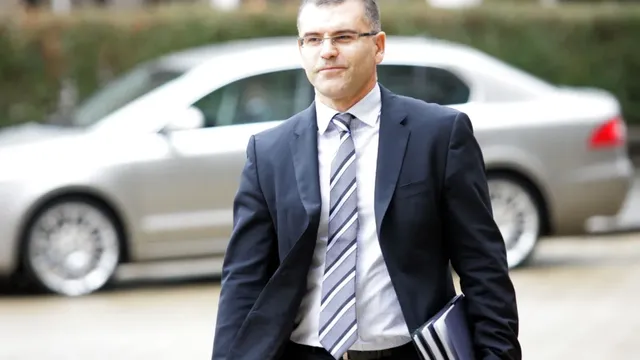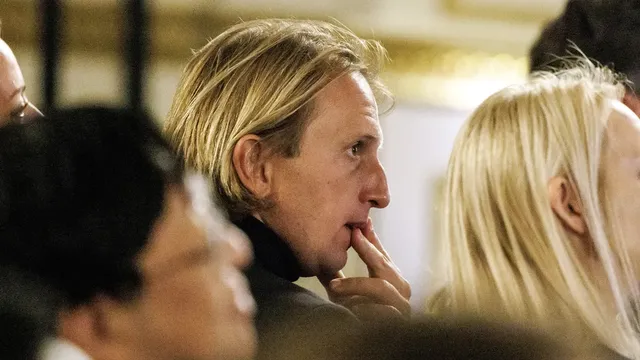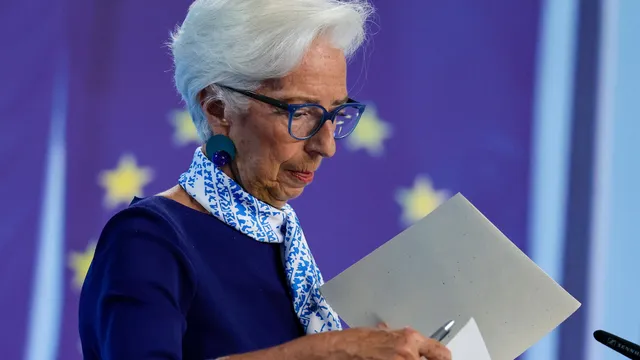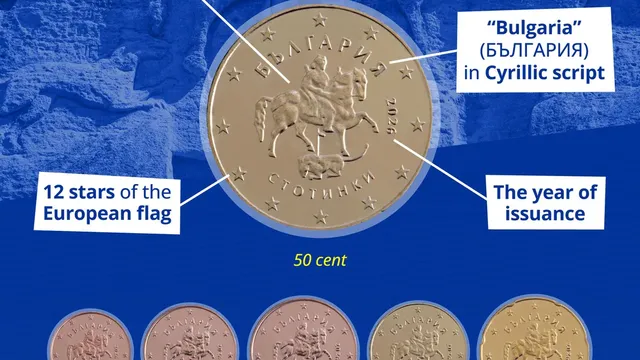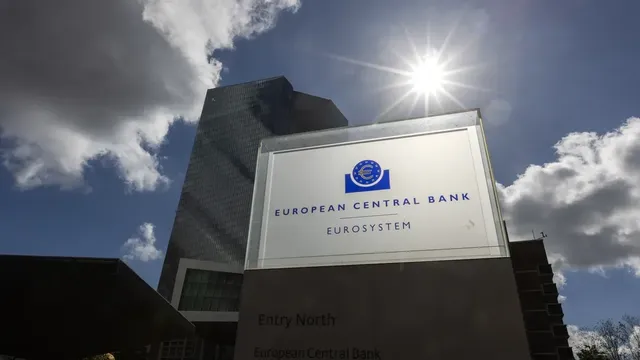Speculation in the period before and after Bulgaria's entry into the eurozone, the size of the budget deficit in 2025, and the drafting of the 2026 budget are the three hot financial topics of the new political season, which starts in September.
This was stated by the chairman of the Fiscal Council and former finance minister Simeon Dyankov in an exclusive interview with BGNES editor-in-chief Georgi Pashkulev.
The first topic will be marked by speculation during our entry into the eurozone. "The government and parliament have passed several laws and a number of measures for transparency in the pricing of retail chains. A lot of political energy is focused there, and this process will continue in the coming months and early 2026," said Dyankov, who did not rule out speculation in some sectors and for some individual products, but hopes that Prime Minister Rosen Zhelyazkov's government will deal with it.
"This creeping inflation has nothing to do with speculation and joining the eurozone, but with the sharp increase in administrative costs in certain ministries, such as the Ministry of the Interior and the Ministry of Defense. Overall, administrative costs will reach 46% in 2025, while the normal level in Bulgaria over the last 10 years has been 36-37%," explained Dyankov, adding that it is very important for citizens to distinguish between speculation and inflation.
The second hot topic is related to what budget deficit we will end up with in 2025. Financial statistics from the last 10-15 years show that by August, the budget is always in surplus, not in deficit.
"This is because personal income taxes go into the budget, and VAT goes in before that. Summer is also strong in terms of tax revenue because of tourism and agriculture," Dyankov pointed out.
This year, however, we already have a serious deficit in June, and the winter months are coming, when there are higher expenditures due to infrastructure and social payments.
"I expect the opposition and analysts to raise the issue of the budget deficit in September. How big it really is and will the government take measures to curb it," Dyankov said.
He is skeptical in this regard because we are talking about a broad coalition, which in principle finds it difficult to make spending cuts. He is adamant that this issue must be raised in September because in October, when next year's budget will be adopted, it will be too late.
"There is no way that any serious decisions can be made in two months."
The third topic is the 2026 budget.
"The fact that we have a higher deficit in 2025, that we were on the brink in 2024 and that President Donald Trump actually helped us enter the eurozone and have some of our deficit spending counted as extraordinary, is in fact part of the fiscal policy that has been in place for five years now. In fact, as early as 2021, during Asen Vasilev's first visit to the Ministry of Finance, it was decided that a 3% deficit is normal, rather than a balanced budget, which the state should strive for. When you have a 3% deficit, you can easily get away with some extraordinary defense spending," Dyankov explained.
He fears that the drafting of the 2026 budget will be, on the one hand, "a huge circus" because of the behavior of some opposition parties, which will use it for all sorts of other things, but also a very "serious issue for Bulgaria, because we have been accumulating a serious deficit for five years now." Reducing it in one year is impossible even for such a serious finance minister as Temenuzhka Petkova.
This raises the question of where to find additional revenue. In this regard, Simeon Dyankov believes that an increase in certain taxes in the 2026 budget is inevitable.
"Of course, the government will immediately say that it does not want to raise taxes under any circumstances. But first, they will have to reveal the truth about the deficit, which remained in the background due to the entry into the eurozone. The other issue is defense spending. Over the next decade, we will have to increase it from the current 2% to 5%, which means an additional 10 billion BGN per year for defense," he said, adding that these expenditures will have to be covered by some additional revenue.
Where will the revenue come from?
According to Dyankov, the government will try not to raise taxes but to increase tax collection, as it did in the 2025 budget.
However, he pointed out that the budget contained "absolutely unrealistic forecasts for tax collection." For example, VAT is to increase by 32%.
"The data we have as of June show that VAT is indeed increasing. This is good, but it is increasing by an average of 14% by the middle of the year. The idea that it will double in terms of collection is simply not feasible," the chairman of the Fiscal Council is adamant.
He also drew attention to the fact that other taxes, such as corporate tax, are being collected rather poorly this year.
"The rosy forecast for 2025 – revenues will certainly not be met, and we will need even more money for next year," Dyankov warned.
He is adamant that the proposed 3% increase in social security contributions for businesses and workers in 2026 and 2027 is "the worst idea" that could be put forward.
"It directly hits businesses and working Bulgarians and has the most distorting effect on the economy. In recent months, the Fiscal Council has published several analyses emphasizing how bad this idea is and that if the government needs more money, it should find it elsewhere," Dyankov said.
The easiest way out of the situation is to raise VAT to 22% because this tax is the easiest to collect.
"It comes from consumption, not production, so it is a much less distorting tax than the social security contributions we talked about. Its collectability is over 90% and it is easier to collect," the former finance minister explained.
Dyankov is skeptical that the government will do this because such a drastic decision would be difficult to gain support for in the broad coalition governing the country.
For this reason, local taxes and fees need to be reviewed. This has been done several times, most recently during the crisis in 2011.
The Fiscal Council has calculated that changes in local taxes and the tax base will bring in an additional 3 billion BGN. This amount is not as significant as what could be collected from VAT; it is about one percent of GDP.
He recommended that an analysis be made of the sectors that benefit most from our entry into the eurozone and that a windfall tax be levied on these sectors.
Specifically, this refers to banks. "It is worth the state considering a temporary windfall tax for one or two years. We have conducted analyses in the Fiscal Council, but we have disagreements on the issue, so the analysis was published in my name and not on behalf of the entire Fiscal Council. It states that 14 of the 27 EU member states currently have such a tax, including the largest economies - France, Germany, Spain, Italy, and the Netherlands. It also exists in almost all Central European countries - the Czech Republic, Slovakia, Hungary, and Poland," Dyankov said.
"In general, tax increases will be a difficult and contentious issue, if they even reach parliament. In September and early October, the Fiscal Council will present several analyses to the Ministry of Finance, the Council of Ministers, and parliament. We will say, this is what is being done in other countries. If Bulgaria does the same as other European countries, this is how much additional revenue will be generated. Decide whether you can do it," Simeon Dyankov concluded.
The main policy that should be included in the 2026 budget is a sharp improvement in public investment in infrastructure.
He noted that infrastructure always remains a secondary issue in the budget. This is clearly seen in the budgets between 2021 and 2025, where large sums of money are initially allocated, but in the end, it turns out that just over 30% of the funds allocated for infrastructure are spent. This is the case for 2024.
"More than two-thirds of the money does not enter into circulation, either because the government is keeping the deficits and does not want to spend, or because there are no projects at the municipal and national level that are good enough," Dyankov said, expressing hope that this will be corrected.
Bulgaria was supposed to join the eurozone in January 2023, but we failed because of Asen Vasilev's sharp pro-inflationary policy, said the chairman of the Fiscal Council.
He emphasized that our country has been ready to join the eurozone for nearly 20 years, having met all the criteria back in 2007-2008, but then the big crisis hit us.
"When I was finance minister, we tried to join twice, but we failed because of Greece and then Spain. Our country has long been ready, both in terms of its banking system and public finances. From this point of view, the sooner we introduce the euro, the better. It turns out that we succeeded in January 2026. It's just time. We have been striving for this for 20 years. It's good that we succeeded," Dyankov said categorically.
The former finance minister refuted claims that the euro is to blame for high inflation. He gave the example of Croatia's entry in 2023. There, the rise in prices was not due to the introduction of the single currency, but to the war in Ukraine and the sharp rise in energy prices.
The latest official data for July show that inflation in Bulgaria is above 5%. According to Dyankov, this is bad news that will be used by critics, who will immediately blame the euro.
"In reality, the most important reason for this high inflation is the large additional expenses for the state administration, the Ministry of Interior, and the Ministry of Defense. With this additional money, people are spending more and, accordingly, overall inflation is rising. In other words, the reason is not our entry into the eurozone, but the fiscal policy in the 2025 budget," explained the chairman of the Fiscal Council.
Simeon Dyankov is adamant that despite all the problems he mentions, Bulgaria is doing very well on the economic map of Southeast Europe. Our country has made significant progress over the past 20 years and has avoided many of the crises that our neighbors have faced. І BGNES

 Breaking news
Breaking news
 Europe
Europe
 Bulgaria
Bulgaria
